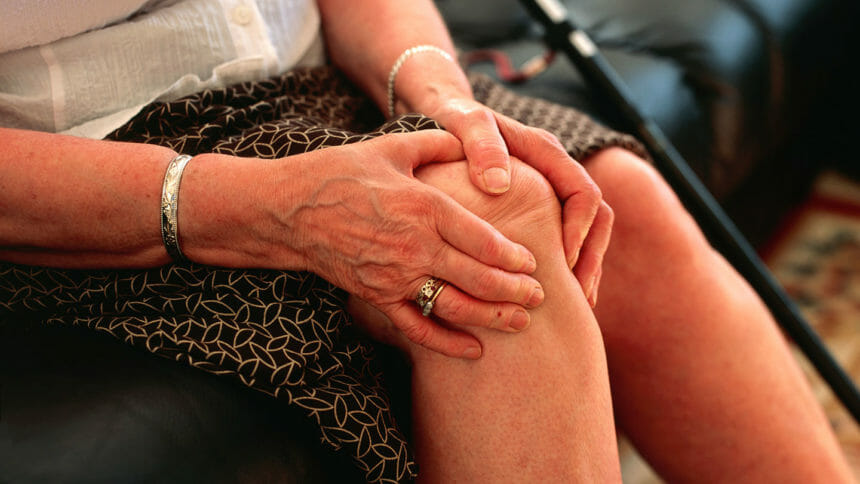
Here’s a reason to keep strength training: Maintaining strong thigh muscles may lower the risk of needing total knee replacement, a new study finds.
Stronger quadriceps, relative to hamstrings, may reduce the need for the orthopedic surgery, according to findings presented recently at the annual meeting of the Radiological Society of North America. In the United States, about 14 million adults have symptomatic knee osteoarthritis, and more than half of them go on to have total knee replacement surgery.
Doctors believe that stronger muscles are linked to having a lower need for the operation, but their relative importance wasn’t quite understood. Researchers wanted to know about the interplay between the quads and the hamstrings, as they’re the two most important muscle groups impacting the knee.
The quadriceps are the strongest muscles in the body and affect biomechanics, gait and more. On the other side of the leg, the hamstrings control the extension of the hip and flexion of the knee, so they’re just as important in movement.
The team looked at thigh muscle volume in 134 people as part of the Osteoarthritis Initiative, which is a countrywide study sponsored by the National Institutes of Health. The team compared 67 people who had total knee replacement on one knee with 67 others who didn’t have the surgery. The scientists matched the people on variables such as sex and age.
The researchers evaluated 3T magnetic resonance imaging (MRI) scans of the thigh when people went in for surgery, and from two and four years before surgery. When the researchers compared people in both groups, they found that a higher ratio of quad-to-hamstring volume was linked with lower odds of needing total knee replacement surgery. Higher volumes of hamstrings and gracilis (a long muscle on the inside of the thigh) also was associated with lower odds of surgery.
“Our study shows that in addition to strong muscles individually, larger extensor muscle groups — relative to hamstring muscle groups — are significantly associated with lower odds of total knee replacement surgery in two to four years,” Upadhyay Bharadwaj, MD, a researcher from the University of California, San Francisco (UCSF), said in a statement.
“While these results are essential for targeted therapy in a population at risk for osteoarthritis, even the general public can benefit from our results to preventively incorporate appropriate strengthening exercises,” Bharadwaj added.




